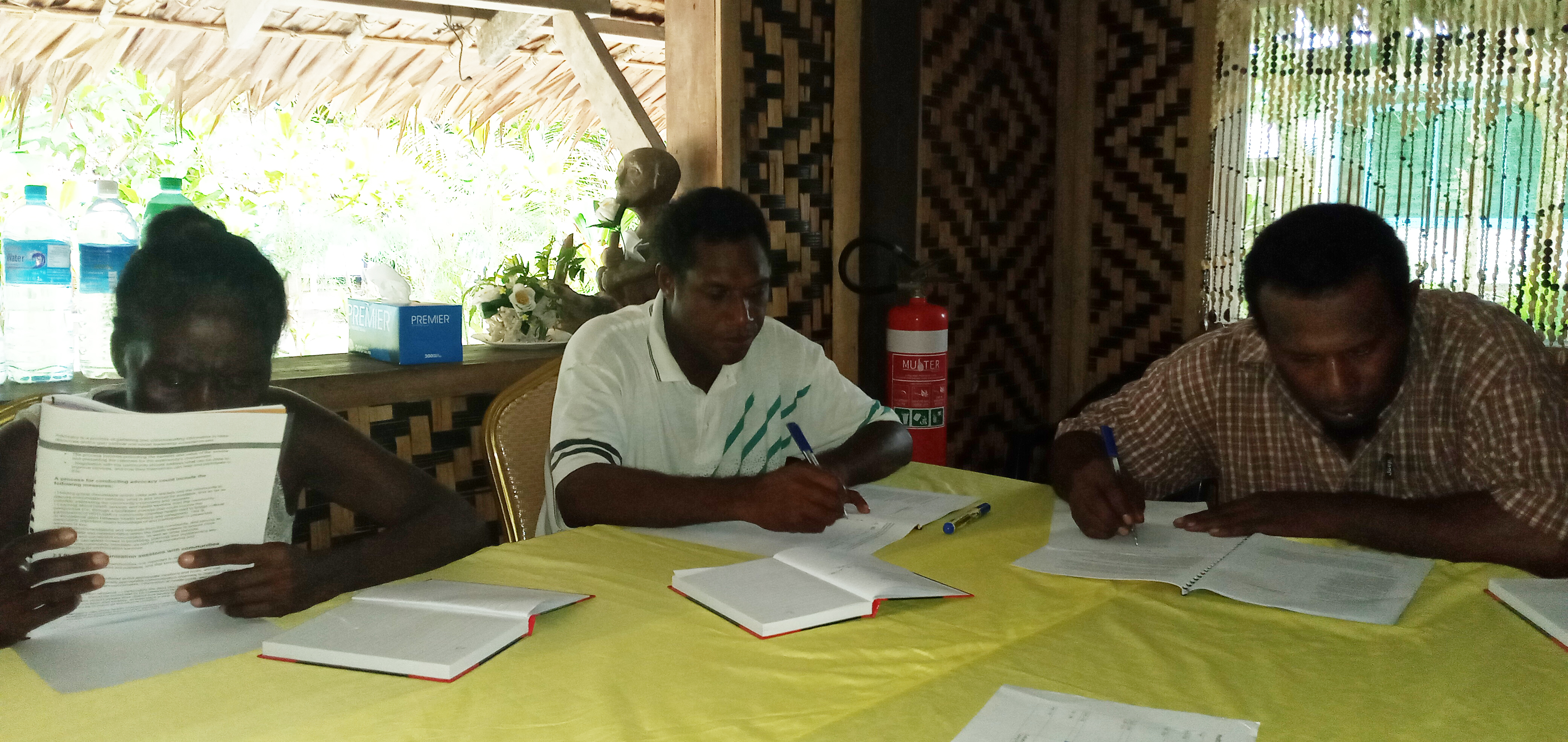Raising community awareness on child immunisation

Increasing community knowledge about the benefits of child immunisation is important to achieve an increase in immunisation coverage in the Solomon Islands.
This can be achieved through the engagement of community leaders and groups, health workers, and civil society organizations in immunisation interventions, by ensuring that health workers conduct outreach immunization campaigns in their catchment areas and that health partners and MHMS coordinate implementation of a clear National Awareness Raising and Social Mobilisation campaign at all levels to achieve maximum, cost-effective impact.
Having recognised this as important, UNICEF and World Vision Solomon Islands, in consultation with Ministry of Health and Medical Services (MHMS) are partnering to deliver community-based approaches to create demand and capacity in health centres and communities with the aim of increasing immunization rates and knowledge on the benefits of sticking to age-appropriate immunization schedules.
Recently, World Vision’s Immunisation Project team have trained nurses in the Weather-Coast of Guadalcanal about the immunisation community engagement manual to ensure relevant information about vaccinations reaches rural communities.
A nurse in-charge at Totongo Rural Health Clinic, Absalom Haikau, applauded the manual saying it really helped them to see ways to improve on their conduct with rural communities.
“The biggest weakness of health workers and rural communities is communication. This manual enabled us to understand that a proper communication link between health workers and communities will ensure mothers are aware of their next clinic day and also when nurses come to their villages to ensure no child is missing out on vaccinations,”
“I remember one case where a mother didn’t take her baby for one year to the clinic for vaccination, so after one year the baby was sick, so they just showed up at Totongo clinic. When I checked against the record, I found the baby had missed a number of important vaccines which was very concerning,” he said.
Mr Haikau further explained, the project would bring positive outcomes when fully implemented, especially because parents will understand the importance of vaccination to their children.
“It will also enable communities to give feed-back to medical practitioners, thus the timing for community visits can best suit the communities so that no one will be missing out,” Mr Haikau emphasized.
Nurses from Marau and Saro Health Centers were also part of the training.
After the training of nurses on the manual, another set of training was conducted to a total of twenty-three community social mobilizers.
Similar training was also conducted at South Malaita and later this month will be conducted in Makira and Central Islands Provinces.